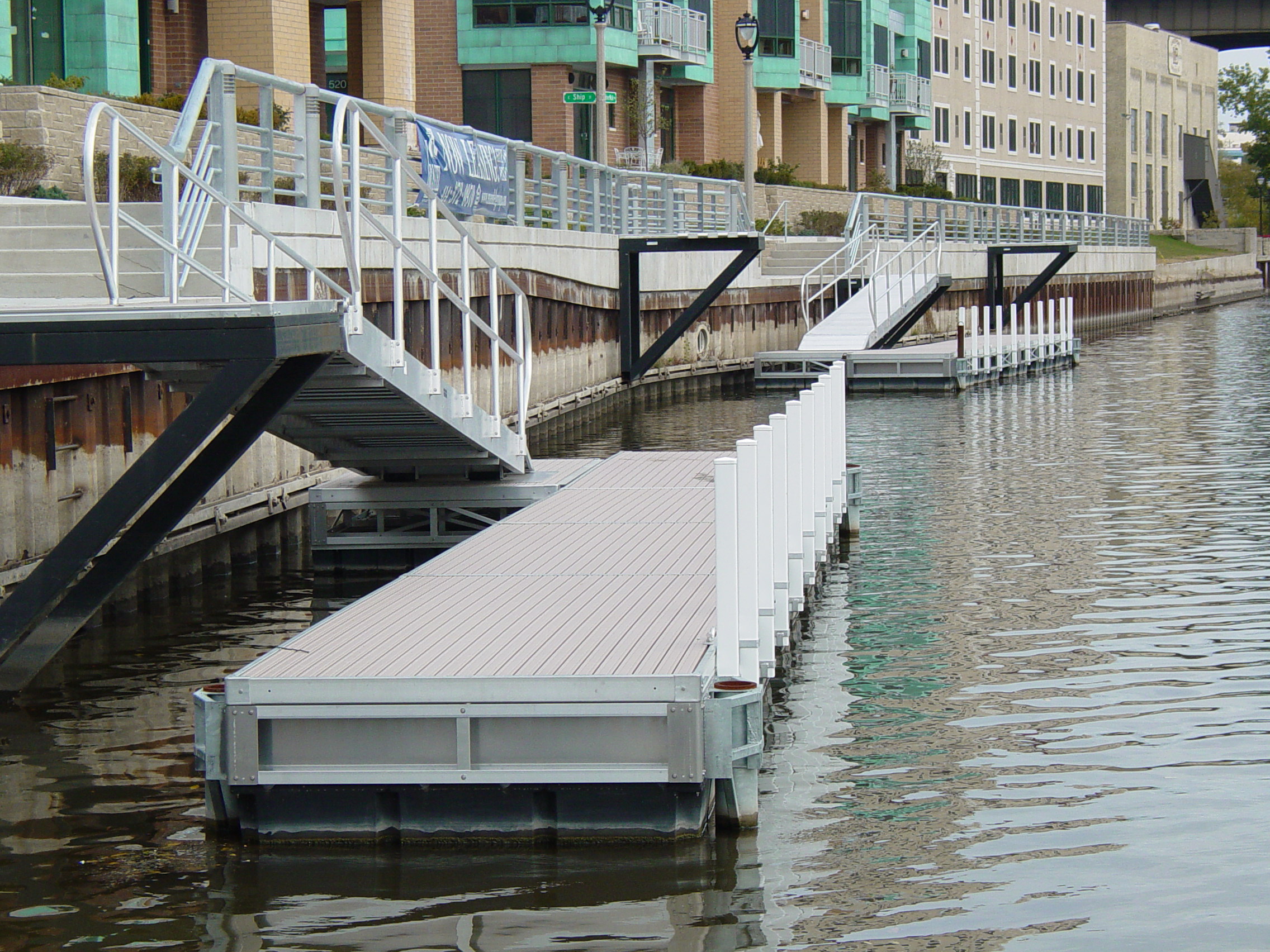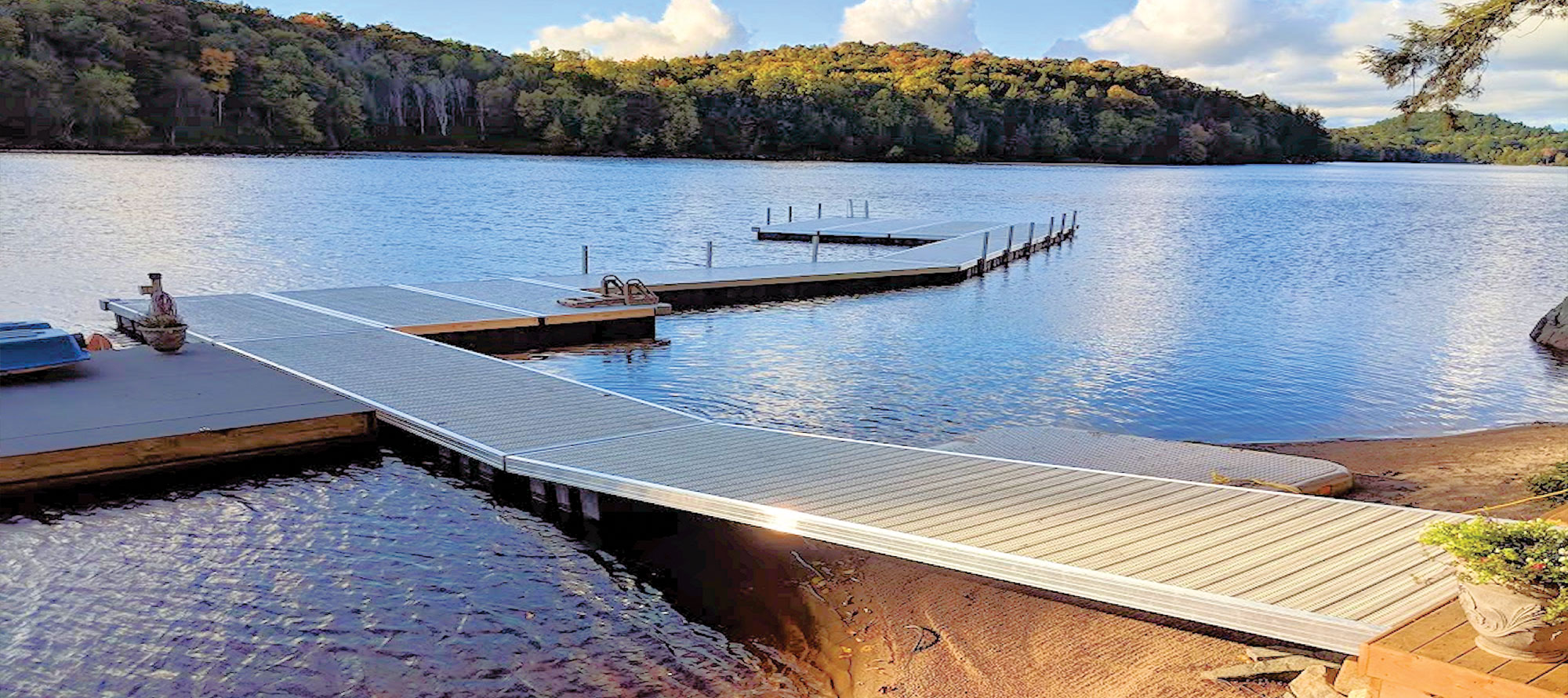Just How Floating Dock Company Expertise Can Raise Your Waterfront Experience
Just How Floating Dock Company Expertise Can Raise Your Waterfront Experience
Blog Article
Floating Docks: The Perfect Selection for Versatile Water Access
Floating docks present an engaging remedy for a variety of water accessibility requires, offering flexibility that transcends conventional mooring options. The modular nature of floating docks promotes personalization, providing to specific demands.
Benefits of Floating Docks
Floating docks deal countless advantages that enhance water access for numerous applications. Their capability to fall and rise with altering water degrees makes them particularly beneficial in environments with varying trends or seasonal variations. This adaptability guarantees that vessels can conveniently moor without issue for the water's depth, providing a reputable system for entertainment, industrial, and commercial usages.
Furthermore, floating docks are typically constructed from durable materials that withstand rust, making them ideal for long-lasting usage in aquatic atmospheres. Their installment is commonly less intrusive than typical fixed docks, reducing the environmental effect and helping with quicker deployment (floating dock services). This versatility permits less complicated moving or reconfiguration according to customer requirements or ecological changes
Security is another vital advantage; floating docks can offer steady gain access to for people disembarking or boarding from boats and lower the risk of crashes connected with unpredictable surfaces. They can be designed to fit a variety of accessories, such as cleats and fenders, improving capability. Generally, floating docks represent an efficient option for boosting water gain access to across varied fields while promoting security and environmental sustainability.

Kinds Of Floating Docks
Different kinds of floating docks satisfy different requirements and environments, each developed with details functions to maximize capability. The most typical types consist of modular docks, which include interlocking sections that permit for simple personalization and expansion. These docks are optimal for leisure use, as they can be customized to fit various watercraft dimensions and water problems.
Another preferred option is the fixed floating dock, which continues to be anchored in area however floats with altering water levels. floating dock company. This type is especially matched for areas with marginal tidal changes, supplying steady accessibility for angling or swimming. Additionally, there are drive-on docks, which feature a sloped layout that enables watercrafts to conveniently drive on and off, making them suitable for personal boat and smaller vessels
For business applications, durable floating docks are available, built from enhanced materials to endure substantial loads and severe aquatic settings. Last but not least, environment-friendly floating docks make use of lasting materials and layouts to decrease environmental effect, often including functions like vegetation to support neighborhood wild animals. Understanding the different kinds of floating docks makes certain that individuals can choose one of the most proper option for their details demands.
Installment Refine Introduction
A successful setup of floating docks needs mindful planning and attention to information to ensure optimal efficiency and safety and security. The initial action entails analyzing the site conditions, consisting of water deepness, existing, and potential challenges. This evaluation educates the choice of the appropriate dock products and layout tailored to the details atmosphere.
Following, obtaining essential licenses is important, as several territories have laws concerning building on water bodies. Once approvals are secured, the installation can proceed. Begin by preparing the foundation, which may entail anchoring systems or pilings tailored to the dock type and neighborhood problems.
Complying with the foundation arrangement, put together the dock sections according to maker specifications. Ensure that all parts are safely attached and aligned to hold up against environmental anxieties. Placement the dock in the marked location, ensuring it is degree and steady.

Maintenance Tips and Finest Practices
After the setup process is complete, recurring upkeep plays an essential duty in ensuring the longevity and functionality of floating docks. Routine assessments should be performed to identify any kind of signs of wear and tear, damage, or wear - floating dock company. Examine for any type of loosened fittings, fractures, or splitting up in the dock areas, as these can compromise structural stability
Cleaning up the dock is important to eliminate particles, algae, and other build-up that can affect its appearance and safety and security. Use a gentle pressure laundry regularly to maintain sanitation without creating damage to the surface. In addition, applying a protective sealer every couple of years can aid enhance durability and withstand environmental wear.
Take notice of the mooring lines and anchors, ensuring they are safe and free from corrosion. Replace any type of abject components quickly to prevent risks. Seasonal modifications might likewise be required; throughout severe weather, enhancing the dock or repositioning can prevent damages.
Applications for Floating Docks
Floating docks serve a multitude of applications, satisfying both leisure and commercial requirements. In entertainment setups, they supply smooth accessibility to rivers for tasks such as boating, angling, and swimming. Their flexible nature allows for installment in varying water levels, making sure safe and secure access despite tidal variations.
Commercially, floating docks are crucial for marinas and waterside companies. They assist in the docking of vessels, allowing effective unloading and loading of items. Their modular layout permits simple development or reconfiguration to fit altering company needs, making them ideal for watercraft leasings, tour operations, or angling charters.
Furthermore, floating docks are made use of in environmental applications such as aquatic study and environment remediation. They can act as platforms for clinical research studies, keeping an eye on water quality, or performing wild animals go surveys without disturbing sensitive environments.
In commercial contexts, floating docks are utilized in construction jobs, giving accessibility to hard-to-reach areas for equipment and personnel. Their flexibility, durability, and minimal impact on the atmosphere make them an optimal choice for a wide variety of applications, enhancing both capability and accessibility in various water-based settings.
Final Thought
In final thought, floating docks represent an ideal option for diverse water access requires, owing to their adaptability, sturdiness, and modular layout. Floating docks offer as a beneficial property for entertainment, commercial, and environmental tasks, making certain trustworthy accessibility to waterways and advertising lasting methods in water environments.
Floating docks present an engaging remedy for a selection of water gain access to needs, offering flexibility that goes beyond standard mooring choices.Floating docks deal numerous advantages that improve water accessibility for different applications. Generally, floating why not try these out docks stand for a reliable remedy for improving water access across varied fields while advertising security and ecological sustainability.
An additional popular alternative is the fixed floating dock, which stays secured in location yet drifts with transforming water levels.In final thought, floating More about the author docks stand for an optimum service for diverse water access needs, owing to their adaptability, sturdiness, and modular style.
Report this page